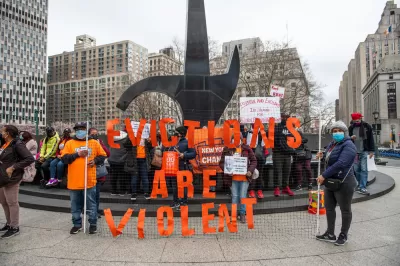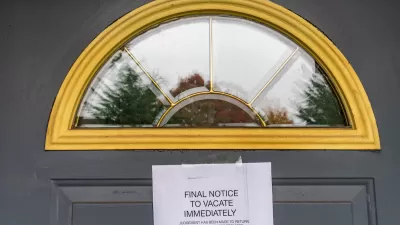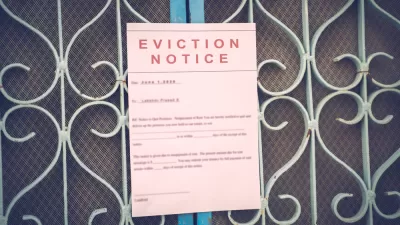On August 12, the U.S. Supreme Court issued an emergency order to block the state of New York's eviction moratorium.

"The Supreme Court issued an emergency order on Thursday blocking a New York state pandemic-issued law created to protect renters from eviction," reports Lilian Dickerson.
The Supreme Court found fault with the portion of New York's "COVID Emergency Eviction and Foreclosure Prevention Act" that "allows tenants to self-certify that they’re facing economic hardship as a result of the pandemic, and avoid eviction through this means through the end of August," according to Dickerson.
"The court’s argument for the law’s unconstitutionality was that landlords had no way to effectively challenge such claims made by a tenant."
The three justices appointed by Democratic presidents dissented from the order, saying the order was unnecessary with the law set to expire in three works from the ruling, and with the potential for harm outweighing the benefit of the order.
An attorney representing the state's landlords is quoted praising the court order. "Meanwhile, housing advocates responded by asking the state legislature to reconvene to amend the law so that it allowed for hearings on tenants’ hardship declarations, in compliance with the emergency order," writes Dickerson.
FULL STORY: Supreme Court partially blocks New York's eviction ban

Planetizen Federal Action Tracker
A weekly monitor of how Trump’s orders and actions are impacting planners and planning in America.

Map: Where Senate Republicans Want to Sell Your Public Lands
For public land advocates, the Senate Republicans’ proposal to sell millions of acres of public land in the West is “the biggest fight of their careers.”

Restaurant Patios Were a Pandemic Win — Why Were They so Hard to Keep?
Social distancing requirements and changes in travel patterns prompted cities to pilot new uses for street and sidewalk space. Then it got complicated.

California Homeless Arrests, Citations Spike After Ruling
An investigation reveals that anti-homeless actions increased up to 500% after Grants Pass v. Johnson — even in cities claiming no policy change.

Albuquerque Route 66 Motels Become Affordable Housing
A $4 million city fund is incentivizing developers to breathe new life into derelict midcentury motels.

DC Area County Eliminates Bus Fares
Montgomery County joins a growing trend of making transit free.
Urban Design for Planners 1: Software Tools
This six-course series explores essential urban design concepts using open source software and equips planners with the tools they need to participate fully in the urban design process.
Planning for Universal Design
Learn the tools for implementing Universal Design in planning regulations.
Heyer Gruel & Associates PA
JM Goldson LLC
Custer County Colorado
City of Camden Redevelopment Agency
City of Astoria
Transportation Research & Education Center (TREC) at Portland State University
Camden Redevelopment Agency
City of Claremont
Municipality of Princeton (NJ)





























